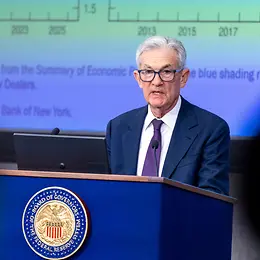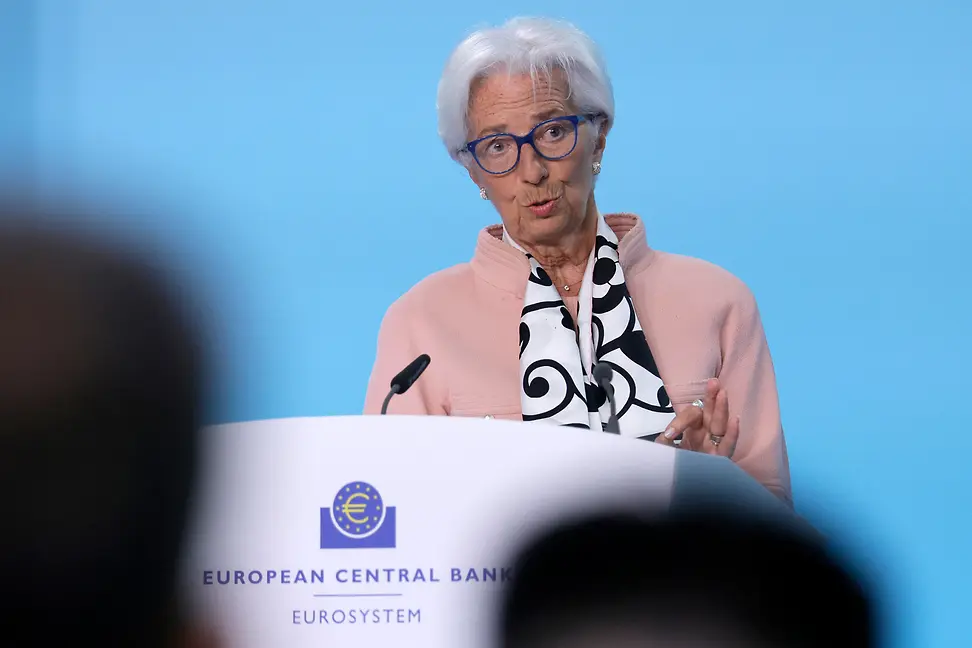The global economy is emerging from a long expansion - an extended summer. As momentum fades and US policy uncertainty grows, the outlook for the second half of 2025 is increasingly chilly.

After years of exceptional growth, signs of a shift are now clear. As we move through 2025, a cooler breeze is blowing through global markets.
Weaker labour markets, tighter credit, and subdued spending indicate a maturing cycle. While this may not signal a dramatic downturn, it does mark a quiet rewriting of the rules of risk and return.
In the United States, what began as a soft-landing story is now being shaped by less controllable forces. Trade friction, political volatility, and shifts in interest rate expectations and policy uncertainty have begun to cloud the picture. Tariff escalations are denting business and market confidence. Recent political shocks - like the so-called "Liberation Day" announcement - triggered market swings on par with the 2008 financial crisis and the COVID-19 pandemic.

Investment activity has become more selective. Hiring intentions have softened. So far, the US tariff policy has had less of an impact through direct economic costs than through its psychological effect: it is fuelling uncertainty, dampening confidence in economic momentum and putting companies under pressure to adjust.
The combination of declining sentiment, high interest rates and rapid inventory build-up in the US retail sector is creating a mix that calls for economic caution. Inflation appears likely to rise in the near term, but its underlying drivers are shifting - from rising prices due to strong demand to increases driven by higher costs, especially from tariffs tied to trade policy. Tariffs have jumped from 2.5 % to around 13 %, assuming current tariff levels remain in place, sharply amplifying inflationary pressure.
As a result, the US consumer price index is expected to peak at around 3.3 % in the third quarter before easing. In this environment, the US Federal Reserve remains cautious. While small interest rate cuts - possibly amounting to around half a percentage point - may still happen, any rate cuts are unlikely before the fourth quarter. At the same time, the yield curve could steepen moderately, especially if recession risks fade - although this brings the potential for renewed upward pressure on long-term interest rates.
The tension between slowing growth and sticky inflation is evident in US bond pricing. We continue to expect rate cuts to offer some relief, especially for bonds with short maturities. But the scope and timing of any easing have narrowed.

In Europe, the story is somewhat different with declining inflation, stable employment, and expected monetary easing by the European Central Bank (ECB). Six rate cuts are anticipated over the course of 2025 - four in the first half and two in the second - which should bring the key policy rate to around 1.5 % by year-end. Importantly, these are markets where returns on bonds - after accounting for inflation - have quietly moved back above zero.
Equity markets are beginning to tell two different stories. In the US, stock prices are high, not because of strong profits but because of buoyant risk appetite. The rebound in US equities has been driven by falling risk premiums, not earnings growth. There is little margin for error. By contrast, European equities appear less fully priced, and in some cases, overlooked. Smaller and mid-sized companies in particular are drawing renewed attention, benefiting from lower exposure to global tariff risk and from a more domestically anchored growth profile.
As different parts of the market move less in sync and price swings continue, active management is making a measured return. The retreat of passive investing reveals opportunities for those focusing on fundamentals.
As equity markets grow more selective, investors are also turning to assets that provide shelter from uncertainty. In times of geopolitical and macroeconomic uncertainty, gold tends to reassert its relevance. Today is no exception. The metal's appeal is being reinforced not only by its traditional safe-haven role, but also by growing doubts about the long-term stability of reserve currencies. Central bank accumulation, in particular, has added a structural tailwind.

Beyond gold, alternative strategies are gaining traction - not despite volatility, but because of it. Private debt and real assets are gaining appeal because they may hold up well when growth slows and prices rise. Hedge funds and specialised insurance-related investments, which had lost popularity in a market driven mostly by broad trends, are once again being assessed on their ability to provide returns that don't follow the ups and downs of the stock market. Private equity, while slower to revive, still holds long-term relevance - especially in industries where operational improvements can increase value.
China's transition from factory to consumer economy is proving difficult. Stagnating growth is weighing heavily on export-dependent countries.
We are approaching a stage in the cycle where capital is no longer chasing momentum, but clarity. That clarity is harder to come by in a world shaped by shifting central bank policies, fragmented politics, and evolving consumer habits.
The economic season is changing - not overnight, but unmistakably. This may be less a time of retreat - and more a time of reorientation - for those ready to act with insight and intent.
LGT Wealth Management UK LLP is authorised and regulated by the Financial Conduct Authority Registered in England and Wales: OC329392. Registered office: 14 Cornhill, London, EC3V 3NR. LGT Wealth Management Limited is authorised and regulated by the Financial Conduct Authority. Registered in Scotland number SC317950 at Capital Square, 58 Morrison Street, Edinburgh, EH3 8BP. LGT Wealth Management Jersey Limited is incorporated in Jersey and is regulated by the Jersey Financial Services Commission in the conduct of Investment Business and Funds Service Business: 102243. Registered office: Sir Walter Raleigh House, 48-50 Esplanade, St Helier, Jersey JE2 3QB. LGT Wealth Management (CI) Limited is registered in Jersey and is regulated by the Jersey Financial Services Commission: 5769. Registered Office: at Sir Walter Raleigh House, 48 – 50 Esplanade, St Helier, Jersey JE2 3QB. LGT Wealth Management US Limited is authorised and regulated by the Financial Conduct Authority and is a Registered Investment Adviser with the US Securities & Exchange Commission (“SEC”). Registered in England and Wales: 06455240. Registered Office: 14 Cornhill, London, EC3V 3NR.
This communication is provided for information purposes only. The information presented is not intended and should not be construed as an offer, solicitation, recommendation or advice to buy and/or sell any specific investments or participate in any investment (or other) strategy and should not be construed as such. The views expressed in this publication do not necessarily reflect the views of LGT Wealth Management US Limited as a whole or any part thereof. Although the information is based on data which LGT Wealth Management US Limited considers reliable, no representation or warranty (express or otherwise) is given as to the accuracy or completeness of the information contained in this Publication, and LGT Wealth Management US Limited and its employees accept no liability for the consequences of acting upon the information contained herein. Information about potential tax benefits is based on our understanding of current tax law and practice and may be subject to change. The tax treatment depends on the individual circumstances of each individual and may be subject to change in the future.
All investments involve risk and may lose value. Your capital is always at risk. Any investor should be aware that past performance is not an indication of future performance, and that the value of investments and the income derived from them may fluctuate, and they may not receive back the amount they originally invested.